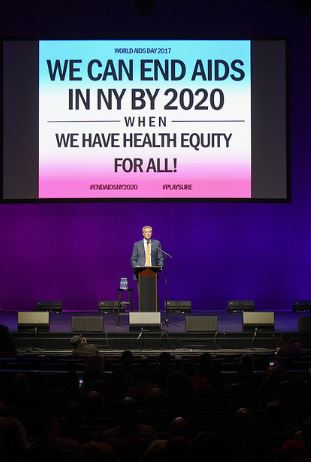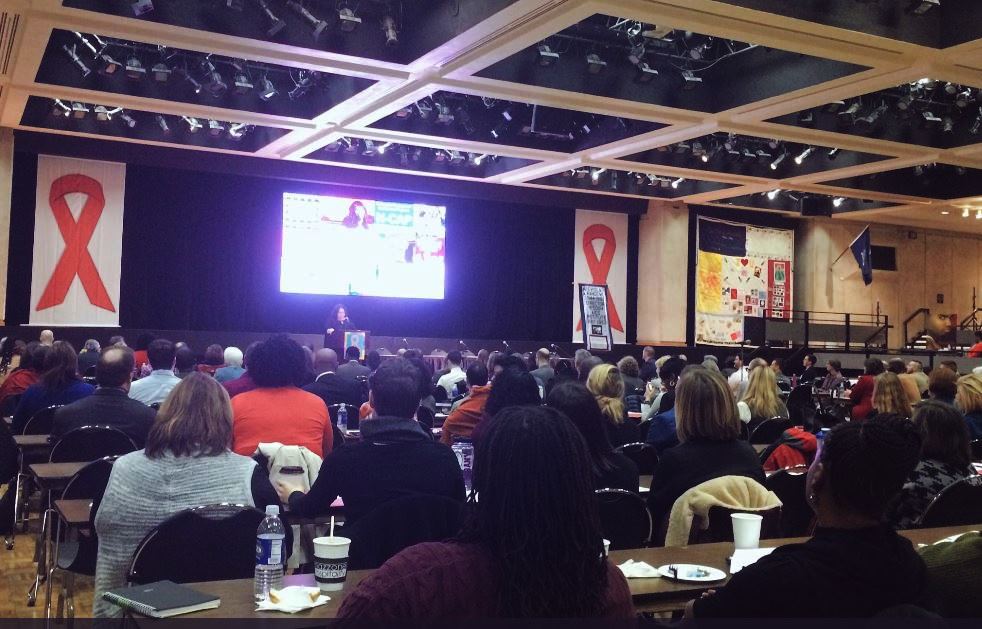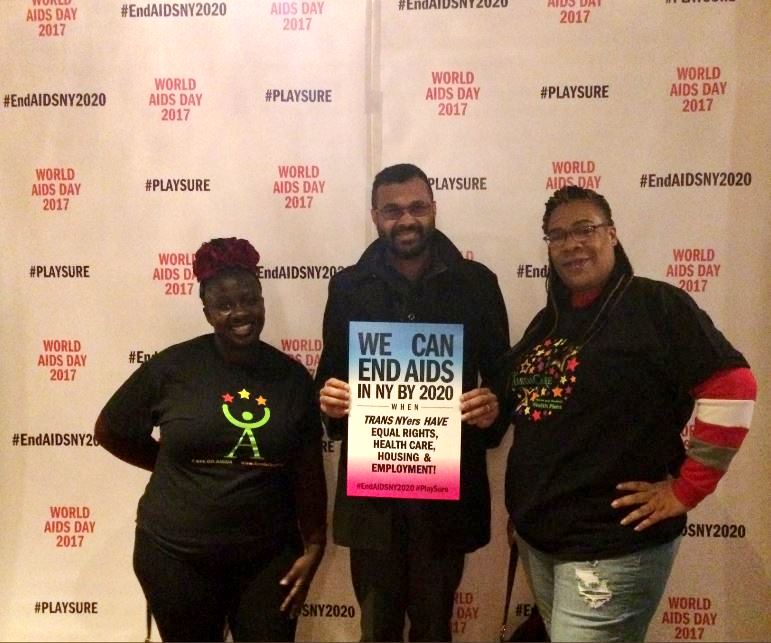Amida Care Commemorates World AIDS Day 2017
December 12 2017
World AIDS Day 2017 marks a pivotal time in New York State’s initiative to End the HIV/AIDS Epidemic by 2020. The Centers for Disease Control and Prevention recently confirmed that a person living with HIV who has an undetectable viral load cannot transmit the virus to others. We now know that “Undetectable equals Untransmittable” (U=U). In New York City, three years into the implementation of the NYS Ending the Epidemic Blueprint, increased linkage to testing and treatment has been a critical factor in reducing the number of new HIV infections to a historic low—down from 3,000 per year to 2,279 in 2016. New York State also reported a historic low of new HIV diagnoses in 2016, with 2,881 new diagnoses, and new HIV infections have dropped by 40 percent over the last 10 years.

In NYC, community leaders, local officials, including Mayor Bill de Blasio, and health care providers spoke at a World AIDS Day event held at Kings Theatre in Brooklyn, sharing updates about progress in the fight against HIV/AIDS, and honoring those who have been lost.
While we’ve made great strides forward in ending the AIDS epidemic, our job won’t be done until we reach every community impacted by this crisis. In the U.S., 1.1 million people are living with HIV, and 15 percent don’t know their status. Rampant stigma, discrimination, and lack of access to culturally competent health care lead communities at greater risk for HIV—such as transgender individuals and young men of color who have sex with men (MSM) —to avoid medical care. We need to break down the barriers that prevent access to HIV prevention tools like pre-exposure prophylaxis (PrEP), HIV testing, and life-saving treatment and care.
In New York State, access to rental assistance must be expanded for people living with HIV outside of New York City. An estimated 3,700 New Yorkers with HIV who reside outside of New York City are homeless or do not live in a stable housing environment. This poses a formidable barrier to retaining them in care and providing access to HIV treatment that leads to viral suppression. In addition to stable housing, other social factors that contribute to the spread of HIV must be addressed, including lack of access to food, education, employment, mental and other health services. Rental assistance is essential to improve individual and community heath, reduce costly use of homeless shelters, and generate offset savings by preventing new HIV infections and reducing avoidable crisis care.
Nationally, World AIDS Day 2017 falls amid continued actions by Congress and the Trump administration that will undermine America’s access to health care. When the Trump Administration and its Congressional allies failed to destroy the Affordable Care Act, they resorted to attacking health care through the Tax Cuts and Jobs Act. The tax bill, now heading to conference, not only cuts taxes for large corporations and the country’s wealthiest while raising taxes on middle class and low-income Americans, it also deeply undermines America’s health care system, stripping affordable care from millions of low- and middle-income families. A repeal of the individual mandate will lead to sky-high premiums, and the bill will add $1.5 trillion to the national debt, resulting in spending cuts on programs like Medicare, Medicaid, and Ryan White, which are vital to millions of Americans, including people living with HIV and any other chronic condition.
People with chronic conditions like HIV count on Medicaid for health insurance. It enables them to lead healthier, more productive lives and greatly reduces the chance of HIV transmission, which gets us closer to ending AIDS as an epidemic. America’s hard-working lower- and middle-income families already face an array of challenges in making ends meet. If this bill becomes law, it will worsen an already troubling level of inequality in the United States, increase health insurance costs, lead to millions of Americans losing their health coverage, increase debt, push more people into poverty, and, in the end, create a far greater tax burden on the nation. Now more than ever, we must mobilize to preserve and increase health care access, especially for those communities that face the greatest barriers.


